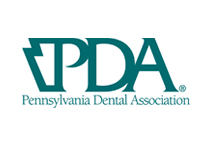The mouth is sometimes referred to as the “portal” to one’s entire health. Taking care of your teeth and gums improperly can lead to a range of health issues. Oral health is crucial for everything from tooth loss and gum disease to heart disease and diabetes.

The mouth is referred to as oral. The mouth contains the hard and soft palates, the mucosal lining of the mouth and throat, the tongue, the lips, the salivary glands, the chewing muscles, and the upper and lower jaws, in addition to the teeth and gums (gingiva) and their supporting tissues. The neurological, immunological, and vascular systems all have branches that animate, defend, and nourish the oral tissues, as well as offer connections to the brain and the rest of the body. The close association between the oral tissues and the growing brain is revealed by the genetic patterning of development in utero.
In the 1930s, researchers noticed that persons who lived in communities with naturally fluoridated water had fewer dental cavities than those who drank unfluoridated water. The investigators were not able to design and perform community clinical studies that supported their findings and began a better solution to the problem of dental caries: prevention, until the end of World War II. Adjusting the fluoride concentration of community water sources became a priority as a public health measure to prevent dental cavities not long after.
Bad dental hygiene habits can lead to a variety of issues. The most visible issues would be decaying teeth and gums. Gum disease can lead to loose teeth, cavities, infections, and other complications. Not properly caring for your teeth might result in pain and, in the worst-case scenario, tooth loss. It can, however, be avoided.
Brushing and flossing your teeth on a daily basis, as well as visiting your dentist for checkups and routine treatment, are the greatest ways to avoid problems with your teeth and gums. You will have a high chance of keeping your mouth healthy if you take good care of your teeth.
However, it is not a simple task. The best approach for parents to guarantee that their children have a healthy mouth is to instill excellent habits in them at a young age. Parents should begin teaching their toddlers to brush their teeth as soon as teeth appear in their mouth, and this practice should be continued on a frequent basis as the child grows. They may be preventing future difficulties by starting early with good tooth health.
There are safe and effective disease prevention techniques that anybody may use to promote oral health and prevent disease. Daily oral hygiene procedures and other lifestyle practices, community programs such as community water fluoridation and nicotine cessation programs, and provider-based interventions such as dental sealants and examinations for common oral and pharyngeal malignancies are all examples of these strategies.
The most common oral ailments are caused by microbial infections, which include those caused by bacteria, viruses, and fungus. Dental caries, periodontal disorders, herpes labialis, and candidiasis are just a few examples.
Many oral and craniofacial diseases and disorders, as well as population categories, have inadequate or no national and state data. Variations in patterns of health and disease among population groupings can be seen within and between states, according to available state data.
To produce better measurements of disease and health, to explain the variations across population groups, and to design interventions aimed at minimizing disparities, more research is required. Oral-facial discomfort is a major source of reduced quality of life, both as a symptom of untreated dental and oral issues and as a condition in and of itself. It’s linked to sleep deprivation, sadness, and a variety of negative psychosocial effects.
Limitations in verbal and nonverbal communication, social engagement, and closeness are all self-reported effects of dental diseases on social function. Individuals with facial disfigurements as a result of craniofacial diseases and conditions, as well as their treatments, may suffer from low self-esteem, anxiety, depression, and social stigma, which can limit educational, career, and marital opportunities, as well as affect other social relationships. Poor clinical state and limited access to care are linked to lower oral-health-related quality of life.
Individuals, practitioners, and communities can all benefit from effective illness prevention strategies. The majority of these are aimed at preventing dental caries, such as fluorides and dental sealants, and require a mix of services to provide effective disease prevention. Gingivitis can be prevented by daily oral hygiene activities such as brushing and flossing.
We hope that this information has been useful in learning about the problems that might arise when appropriate dental hygiene is neglected.








